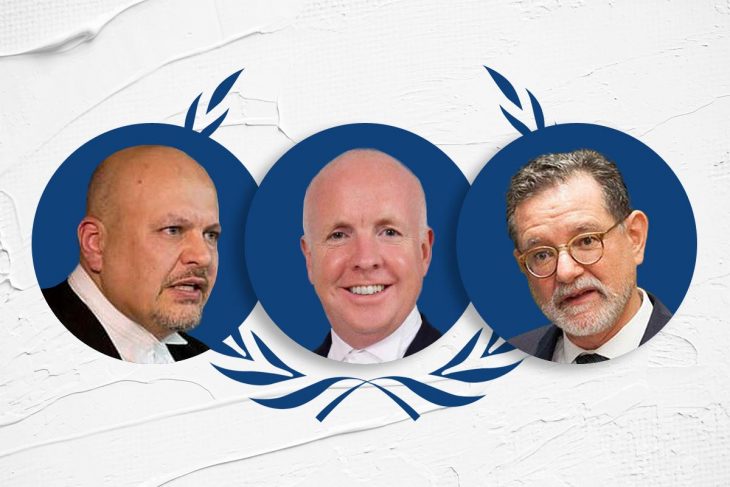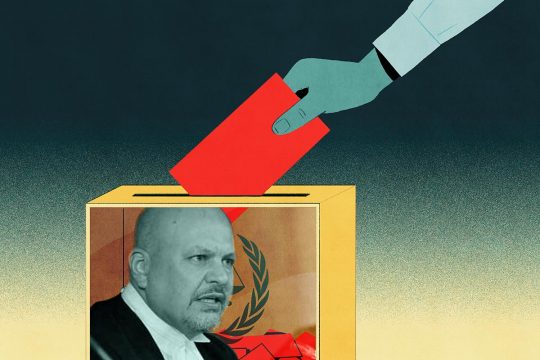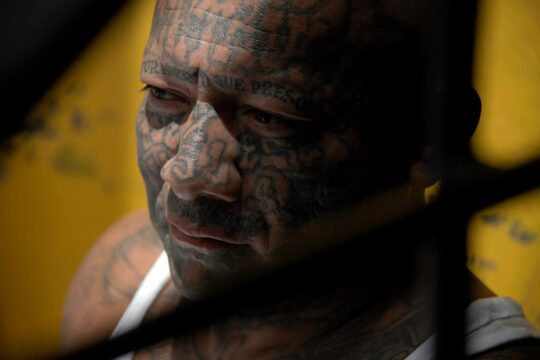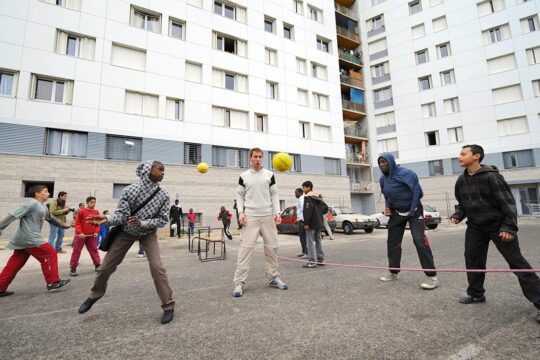The deadline for states to find the all-elusive consensus candidate has been extended to noon today, New-York time. It looks inevitable there will be an election, although most states would have preferred consensus – in other words, a rubber stamp coronation.
Whoever they choose matters because the court is facing “a legitimacy crisis”, says Milena Sterio, University of Cleveland law professor and managing director of the Public International Law and Policy Group. “So much criticism has been advanced against the [ICC], arguing that the court is a weak and inefficient institution, [that] it has conducted a relatively small number of prosecutions, and [that] this is a waste of time and money”, she outlines. And the choice will chart the course of the institution for nine years and a lot more, because the new prosecutor chooses which cases and situations to pursue.
Transparency is not a hallmark of diplomacy. Individual ambassadors advise their capitals and follow national interests behind closed doors. Hague-based embassies are strongly inclined towards the minutiae of international law. But few are experienced in the wheeling and dealing that building a coalition around a candidate requires. This genteel village rarely sees long night-time sessions with extensive corridor haggling. Under Covid-19 conditions, consultations have been slow and finding a common position elusive. And in New York, where the real centre of power is, this election is just one of diplomats’ endless priorities, one of the many cards in delegations’ hands, to be swopped into another better deal.
Now the fate of the beleaguered court lies with 123 ambassadors operating – as we all are – by online meeting – to try and agree who will be the man to enable this institution to thrive. As professor Diane Amann of the University of Georgia has outlined, we can’t expect someone to be “an inspiring world leader, a deft diplomat, a brilliant boss and an insightful legal strategist” all at the same time.
But we do.
Shallow pool of talents
So, how has the process gone? To understand we need to spool back to the pressures of the last Assembly of States Parties (ASP) meeting in the Hague in 2019. The ASP bureau – the twenty-plus group of states who run the supervisory committees and subcommittees all year round - appointed a Committee to Elect the Prosecutor (CEP). It had strict instructions and was “well intentioned” says Kevin Jon Heller, professor of International Law at the University of Copenhagen, with good people and advisors. But it was “not a replacement”, he says, to a system with states making the final choice.
After trawling what the committee chair Sabine Nolke called a “shallower pool than we had hoped” of talent and experience, they came up with a list which was badly received. “There was no consensus” among states, sums-up Sterio. And to allow some of the ‘big beasts’ of the justice world, to be considered again, the process was re-opened.
Two other pressures need to be taken into account. The first was the expert review of the court which rammed some home truths about the dysfunctionality of the court and some shocking culture issues. This chimed in with another movement: the rise of the #MeToo discussion, where alleged bullying and sexual misconduct can be discussed more openly. “There have been serious allegations, accusations of sexual misconduct that have been advanced against some of the candidates. Most of this is hearsay,” says Sterio. The CEP fully acknowledged it lacked a proper vetting system.
The results of the various rounds of consultations, led by the ASP bureau, have been extensively leaked. Only men from Western Europe remain in the running, which Heller believes “makes a certain sense” as the court is getting embroiled in ever more high-profile controversial situations involving major powers. “What we are seeing is the realisation by states that the Court is indeed too politically significant for them not to want to exert their influence”, says Owiso Owiso, a lawyer and researcher from the University of Luxembourg.
Dead cat play?
So, who are the candidates and what is known about how they are seen?
A common epithet used by commentators to your correspondent is that this election is “nasty”. In diplomatic parlance tilting the discussion around one issue or another is known as the “dead cat play” - meaning you make this the most important issue, link it to the front runners, and – potentially – let a different candidate slip through. For example, the two leading candidates both appeared in Kenya cases at the ICC. If those were to be reopened, if one of them were prosecutor, he would have to recuse himself. Is this a big issue? Or merely one of the dead cats?
Fergal Gaynor is an Irishman, and an experienced international prosecutor at a range of international courts. He represented victims as lead counsel in a Kenya case at the ICC, represents victims in the ICC Afghanistan investigation and a group of Palestinians. Most recently he’s been leading the Syrian regime crimes investigation teams at the Commission for International Justice and Accountability. He was on the original short list but failed to get a majority of states behind him. His investment in the situations which have brought the court the most external criticism – Afghanistan and Palestine – makes him the best choice for many, and the worst for others. Some see a highly principled prosecutor. A fellow victims’ representative believes he’s “truly independent”. A diplomat who preferred not to be named says “it appears the worst thing Fergal has done… is to represent victims”.
Karim Khan is a British Queens Counsel, currently tasked with collecting evidence on the crimes committed by the former Islamic State in Iraq. A colleague, Tom Lynch, describes him as “inspiring” and “a passionate leader who gets things done”. He has extensive defence experience at the ICC, as lead counsel in a Kenya case – which he won – and for Sudanese, Congolese and Libyan defendants. The CEP did not include him in the first shortlist and suggested there was an apparent coordinated NGO campaign in his support. On the other hand, Kenyan NGOs have written to the ASP with a vehemently negative letter criticising how he operated as a defence counsel “silencing Kenyan voices that wanted accountability”. Khan’s many defenders, on Twitter, challenge any suggestion that Khan is less than ethical.
Carlos Castresana is less well known in ICC circles. As a Spanish prosecutor he filed a case on behalf of the victims against Augusto Pinochet and former Argentine military personnel for alleged human rights violations. He then led the Commission Against Impunity in Guatemala and allegedly oversaw the capture of more than 150 gangsters, politicians, businessmen and high ranking civil and military officers. However, some dispute his claimed successes, suggesting he was too close to elites in Guatemala. Mark Freeman of the Institute for Integrated Transitions has worked with him for years and describes a “stellar throughout: professional, pragmatic, principled, intelligent and humble”. In an interview with el Pais, Castresana suggests that he would try to steer the court on a different path from the current investigations in Afghanistan, Myanmar and (potentially) Palestine: “We must avoid opening investigations in territories where jurisdiction is not clearly established.”
The power politics at play
All 123 states are equal members of the ICC. But some are more equal than others. They have more influence, pay more into the ICC coffers, are members of the United Nation’s Security Council, the European Union, or the African Union.
And as the court has sought to extend its range beyond the rebel movements of various African conflicts, it has inevitably come up against the ‘real-politic’ of big powers interests. That much-vaunted idea that you could reach consensus, says Heller, was more persuasive in previous elections than now, paradoxically, “at such a critical time for the ICC embroiled in high-profile cases involving superpowers like Russia [Georgia and Ukraine cases], the United States [Afghanistan case], and major regional powers like Israel [Palestinian case]”.
The ICC is certainly at a difficult juncture with these three big powers, and with even a fourth one, when it reaches into the sphere of influence of China by tackling the Myanmar expulsion of Rohingyas. Michael Liu, researching at Leiden University and long term observer on China’s practice on international law, says “China has been diligently keeping an eye on how robust ICC is or is perceived to be in global affairs. China has made it clear that it is ‘watching’ its prosecutor’s strategy in Africa and the Court’s jurisprudence in Myanmar with a frown face.” And communications on Xinjiang “might have cracked some nerves”.
Politics, law and legitimacy
Associate professor at Indiana University, David Bosco suggests some ICC member states will make their choice believing that “the ICC is getting into kind of dangerous terrain. And that it may not be productive for the court to be launching investigations that are going to put it at loggerheads with the U.S. and with some other powerful countries”. They may like the next prosecutor to be “much more circumspect about what investigations the office undertakes”. “A number of important funding states would have this view, including in Europe and Japan”, he adds, suggesting that “Afghanistan, Palestine has created a concern about the court being dragged into areas where it's hard for it to be effective and where it's going to generate a lot of controversy”. Conversely, Bosco acknowledges the many other member states see these moves as “positive”, and maybe even a larger group of states who “believe the court is way too cautious early on and too deferential to major powers”.
“We would all do better in thinking of international criminal law as about politics AND law instead of the pursuit of law over politics”, says Mark Drumbl from Washington and Lee University.
“I have this fear that the court is very close to losing its legitimacy”, says Milan professor Chantal Meloni. She says many – especially the NGO community – have supported the court through thick and thin, but they may “conclude this court is headless and we don’t need this ICC because it is doing more damage than good”. To her, a reverse course on Palestine (last week declared by judges to be a suitable candidate for investigation) or Afghanistan, would symbolise “the fact that the court is weak with the strong states and strong with the weak states”.
Drumbl calls for a little more “honesty and candour and modesty”, from the court. “If you present yourself as the tool to prevent impunity, as the oracle of legalism, if you’re going to bemoan when states act politically, in ways that might thwart you from reaching your goals, you incur a loss when it then becomes apparent that even in your internal functionings and procedures, there’s a deep sense of politicisation, self-interest and bureaucratisation”.
Every organ was criticised in the expert review report, but especially the prosecutor’s office which is referenced 642 times and has more than fifty recommendations in how it should change. Even the most active and enthusiastic supporters can no longer ignore some of the weaknesses in investigations led by the first two prosecutors over some twenty years. The past years have not led to the ICC “emerging as some lean, mean fighting machine,” says Heller. “No matter who is the next prosecutor they're all faced with an incredibly complicated, probably insoluble set of dilemmas".
And today in New York, the states are faced with some stark choices.







